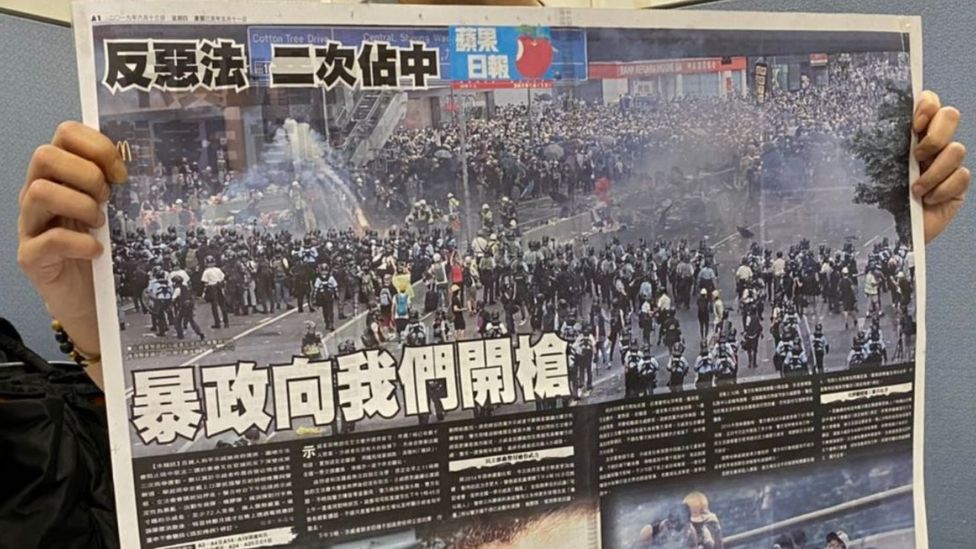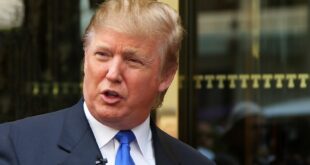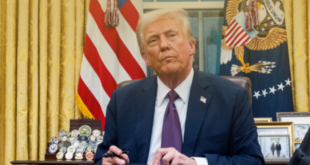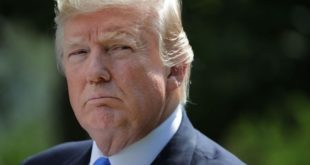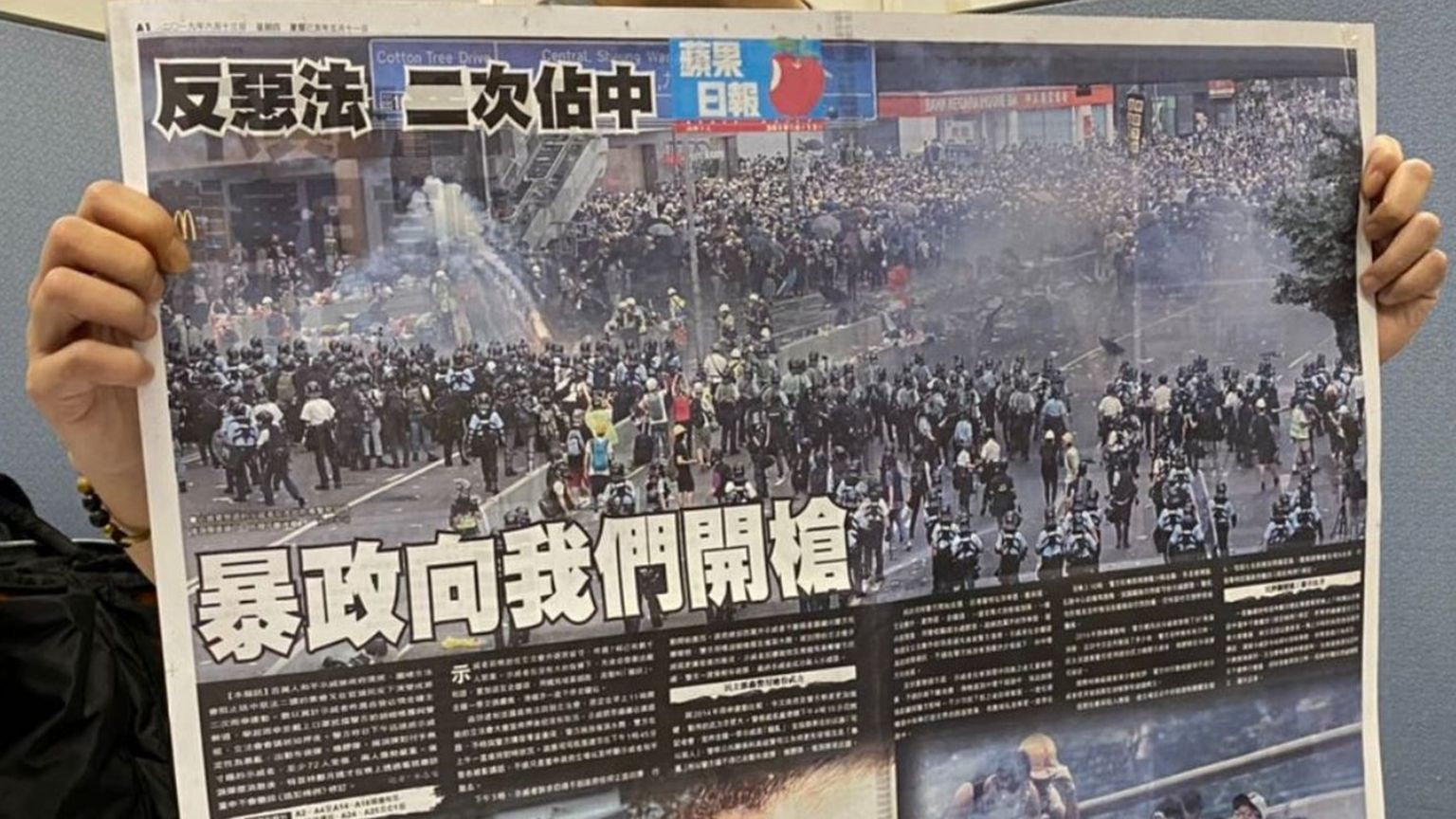
Hong Kong’s largest pro-democracy paper Apple Daily has announced its closure, in a blow to media freedom in the city.
The tabloid’s offices were raided last week over allegations that several reports had breached a controversial national security law.
Police detained the chief editor and five other executives, and company-linked assets were frozen.
The publication had become a leading critic of the Hong Kong and Chinese leadership.
Amnesty International described the closure of Apple Daily as “the blackest day for media freedom in Hong Kong’s recent history”.
“The paper has been effectively banned by the government for publishing articles that criticised it, and for reporting on international discussions about Hong Kong” a statement from Amnesty said.
The paper’s management said that “in view of staff members’ safety”, it had decided “to cease operation immediately after midnight” – making Thursday’s publication the final printed edition.
The digital version of the 26-year old paper will no longer be updated after midnight.
A separate announcement by publisher Next Digital thanked the readers for their “loyal support” as well as its journalists, staff and advertisers.
Apple Daily founder Jimmy Lai is already in jail on a string of charges.
Mark Simon, a close adviser of Jimmy Lai, told the BBC that police had disrupted a board meeting earlier on Wednesday and arrested one journalist.
“We are already closing to be honest, but they still had to show up and to make an arrest,” he said. “[The police wanted to] influence the outcome of the board meeting… they wanted to make sure [Apple Daily] closes quickly.”
It later emerged that a 55-year-old man, identified as an Apple Daily columnist, had been arrested on suspicion of conspiring to collude with a foreign country or foreign forces, local media reports said.
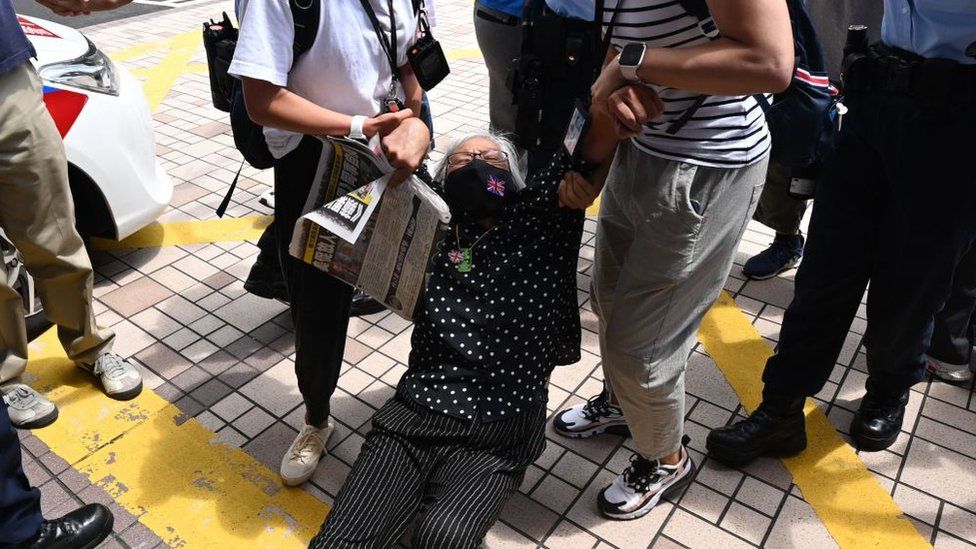 IMAGE COPYRIGHTAFP
IMAGE COPYRIGHTAFPFrom sensationalist tabloid to voice of dissent
Yvette Tan, BBC News
It started off as a local rag, best known for its sensationalist articles and bold catchy headlines – promising sex, drugs and scandal.
But over the past 26 years, it evolved into one of the city’s loudest pro-democracy voices – one of few that dared to challenge China.
Its founder Jimmy Lai was labelled by Beijing as an “anti-China troublemaker”, the paper accused of causing chaos.
Advertisers were told to stay away from Apple Daily – but Lai and his team did not back down – but in fact, doubled down on its critical coverage.
“They were really a strong and loud critical voice to the government,” one professor told me. “It’s a terrible blow for press freedom in Hong Kong. I think everyone is in shock right now.”
As for what lies ahead – Hong Kong’s government is set to introduce a fake news legislation – raising fears that this could be used as a new tool to stifle dissent.
Last Thursday, some 500 police officers raided the publication’s newsroom, saying its reports had breached the city’s controversial national security law.
In a press briefing following the raid, police accused the newspaper of publishing more than 30 articles calling on countries to impose sanctions on Hong Kong and mainland China since 2019.
Police also arrested the editor-in-chief and four other executives at their homes and froze HK$18m ($2.3m; £1.64m) of assets owned by three companies linked to Apple Daily – Apple Daily Limited, Apple Daily Printing Limited and AD internet Limited.
The paper then said it only had enough cash to continue normal operations for “several weeks”.
The media tycoon had been one of the most prominent supporters of Hong Kong’s pro-democracy movement.
In his last interview with the BBC before he was sentenced to jail, he said he would not give in to intimidation.
bbc.com
 Home Of Ghana News Ghana News, Entertainment And More
Home Of Ghana News Ghana News, Entertainment And More
